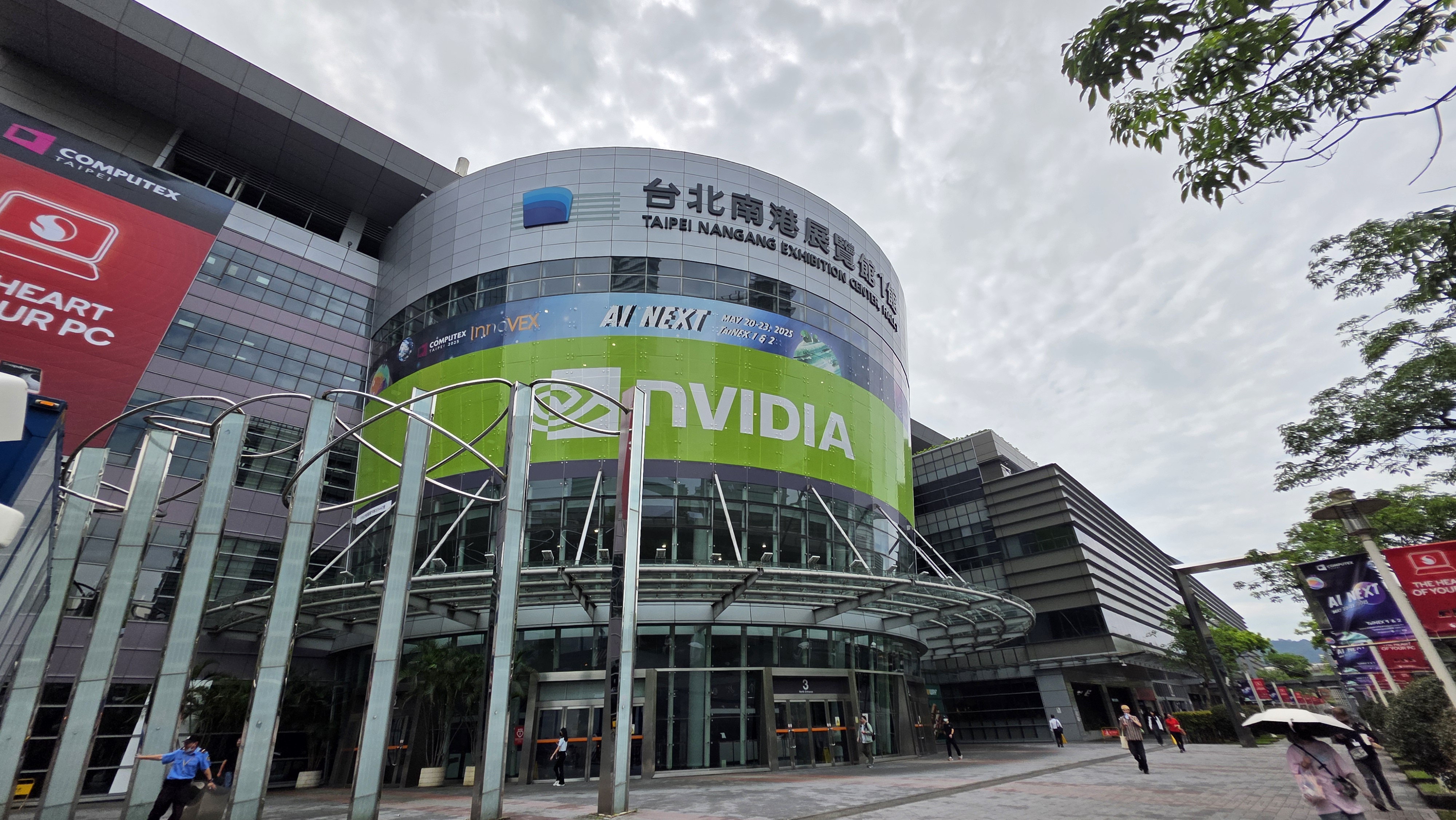Nvidia CEO Jensen Huang says ‘There’s no evidence of any AI chip diversion’
He made the comments arriving at Computex

Nvidia CEO Jensen Huang says that there is no evidence of AI chip diversion to countries where the sale of said chips is prohibited, in response to questions at Computex 2025. Huang told Bloomberg that there is no evidence of diversions when it comes to its Grace Blackwell chips. Furthermore, he added that Nvidia’s customers are well aware of the restrictions and that they are careful about it when selling to third parties.
“Governments understand that diversion is not allowed, and there’s no evidence of any AI chip diversion — recognize our data center GPUs are massive; these are massive systems,” Huang said during the surprise questioning. “The Grace Blackwell system is nearly two tons, and so you’re not going to be shipping — you’re not going to be putting that in your pocket or your backpack anytime soon. And so, these systems are fairly easy to keep track of... but the important thing is that the countries and the companies that we sell to recognize that diversion is not allowed, and everybody would like to continue to buy Nvidia technology, and so they very well monitor themselves very carefully and they’re quite careful about that.”
However, this doesn’t seem to be the reality. After all, we’ve already heard of several instances of Nvidia AI GPUs getting past Washington’s sanctions and getting into the hands of Chinese businesses. We’ve even seen one businessman showing off his smuggled H200 GPUs on X. Even as late as March 2025, there have been reports of Chinese entities using corporations registered in neighboring countries like Malaysia, Vietnam, and Taiwan to order these advanced chips and then reroute them to China.
Singapore has already started cracking down on this practice, and the U.S. has also asked Malaysian authorities to keep an eye on this black market and shut it down. However, Malaysian imports of advanced GPUs still surged by over 3,400% in early this year, raising alarm bells.
Huang also said that these servers are massive, weighing several tons, so tracking them shouldn’t be difficult. But the company has also said that these AI chips are impossible to find after they’re sold. That’s why the U.S. Congress is considering legislation that would require companies to enable geo-tracking on high-end gaming and AI GPUs. Furthermore, weight and size are no issues when it comes to smuggling. After all, if stolen cars and SUVs can be smuggled across borders, then GPU servers are fair game as well, especially with the amount of money involved.
Follow Tom's Hardware on Google News to get our up-to-date news, analysis, and reviews in your feeds. Make sure to click the Follow button.
Get Tom's Hardware's best news and in-depth reviews, straight to your inbox.

Jowi Morales is a tech enthusiast with years of experience working in the industry. He’s been writing with several tech publications since 2021, where he’s been interested in tech hardware and consumer electronics.
-
TheyStoppedit "There’s no evidence of any AI chip diversion" and that's why we can deny the allegation. :ROFLMAO: NVidia's lying problem is getting out of control lol. They're giving Apple a run for their money at this point. Did you see Steve's new video? LolReply -
Pierce2623 Wait…. so Malaysian GPU shipments going up 3400% between ‘23 and ‘24 while there aren’t data centers just popping out of the ground there isn’t evidence?Reply -
phead128 Reply
Are you sure that is the final destination or the billing address? I think smugglers are a bit more sophisticated that giving away their final destination instead of using shell companies or third-parties, that's just me.Pierce2623 said:Wait…. so Malaysian GPU shipments going up 3400% between ‘23 and ‘24 while there aren’t data centers just popping out of the ground there isn’t evidence? -
Pierce2623 Reply
That the on paper final destination…I think it’s clear from the context that the true final destination is China.phead128 said:Are you sure that is the final destination or the billing address? I think smugglers are a bit more sophisticated that giving away their final destination instead of using shell companies or third-parties, that's just me. -
phead128 Reply
Every source I've read says this is the customer's billing location, not the physical location of the goods.Pierce2623 said:That the on paper final destination…I think it’s clear from the context that the true final destination is China.
For example:
This is due to a new reporting method that logs revenue based on the customer’s billing location, rather than the physical destination of the goods. (Tomshardware)
As you may know, it's trivial to establish a shell company with a customer billing location in the Cayman Islands, Ireland, or Virgin islands to avoid tax purposes. There is an entire industry of tax loopholes, smuggling evasion, etc... it's not as simple as what is reported to customs is the actual truth. If it was so simple, multi-national corporations would pay their fair share of taxes and sanction busting would be a piece of cake.